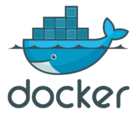I really like this kind of news, new versions of docker and RedHat:
Docker 1.0: this is the first stable version after more than one year of development. This version is production ready and I will start using it asap. RedHat 7: this is a good news as the version 6 started to be a little bit old now. What’s new? MariaDB replace MySQL \o/ Docker integrated systemd XFS by default Kernel 3.



